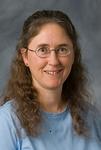Cited By
View all- Bunde DButler ZHovey CTaylor C(2024)CONVERSATIONS: Conversation with a Prominent Propagator: Susan H. RodgerACM Inroads10.1145/369972015:4(9-13)Online publication date: 11-Nov-2024
- Allison J(2023)Classifying the Characteristics of Effective Continuing Professional Development (CPD) for Computer Science Teachers in the 16-18 SectorACM Transactions on Computing Education10.1145/358227523:2(1-30)Online publication date: 30-Jan-2023
- Zhu MWang C(2023)K-12 Computer Science Teaching Strategies, Challenges, and Teachers’ Professional Development Opportunities and NeedsComputers in the Schools10.1080/07380569.2023.217886841:1(1-22)Online publication date: 22-Feb-2023
- Show More Cited By




